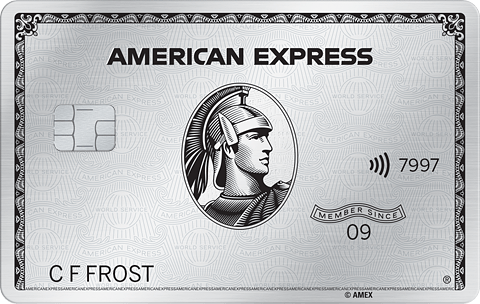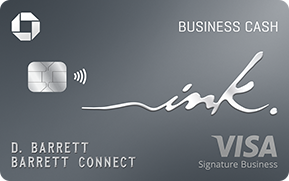- myFICO® Forums
- FICO Scoring and Other Credit Topics
- Personal Finance
- Re: IRS Increases Retirement Contribution Limits f...
- Subscribe to RSS Feed
- Mark Topic as New
- Mark Topic as Read
- Float this Topic for Current User
- Bookmark
- Subscribe
- Mute
- Printer Friendly Page
IRS Increases Retirement Contribution Limits for 2024
Is your credit card giving you the perks you want?
Browse credit cards from a variety of issuers to see if there's a better card for you.
- Mark as New
- Bookmark
- Subscribe
- Mute
- Subscribe to RSS Feed
- Permalink
- Report Inappropriate Content
IRS Increases Retirement Contribution Limits for 2024
401(k), etc.: $23,000 ($30,500 for people age 50+)
IRA: $7,000 ($8,000 for people age 50+)
https://www.irs.gov/newsroom/401k-limit-increases-to-23000-for-2024-ira-limit-rises-to-7000
- Mark as New
- Bookmark
- Subscribe
- Mute
- Subscribe to RSS Feed
- Permalink
- Report Inappropriate Content
Re: IRS Increases Retirement Contribution Limits for 2024
Thank you for the info!








![Capital One Quicksilver | $4000 | July 2013 [AU]](https://ecm.capitalone.com/WCM/card/products/quicksilver-card-art.png)
![Capital One Venture X | $40,000 | September 2023 [AU]](https://ecm.capitalone.com/WCM/card/products/venturex-cg-static-card-1000x630-2.png)
![Chase Amazon Prime | $15,900 | March 2020 [AU]](https://creditcards.chase.com/K-Marketplace/images/cardart/prime_visa.png)



























- Mark as New
- Bookmark
- Subscribe
- Mute
- Subscribe to RSS Feed
- Permalink
- Report Inappropriate Content
Re: IRS Increases Retirement Contribution Limits for 2024
@Yawgoog wrote:401(k), etc.: $23,000 ($30,500 for people age 50+)
IRA: $7,000 ($8,000 for people age 50+)
https://www.irs.gov/newsroom/401k-limit-increases-to-23000-for-2024-ira-limit-rises-to-7000
Welcome to the forum.
And thanks for the article.
































Total revolving limits 569520 (505320 reporting) FICO 8: EQ 699 TU 696 EX 673
- Mark as New
- Bookmark
- Subscribe
- Mute
- Subscribe to RSS Feed
- Permalink
- Report Inappropriate Content
Re: IRS Increases Retirement Contribution Limits for 2024
It would be nice if they took the adjusted gross income requirement off of the IRA contribution. I am a contractor with no 401k, so I contribute myself. However, I found out a few years ago, if your adjusted gross income is >208k, and your spouse has a 401k, you dont get the IRA exemption. I was shocked when I found that out.
Inactive Cards: Citi CCR MC - $43.5k | Citi AA World MC - $17.5k | Discover IT - $10k



- Mark as New
- Bookmark
- Subscribe
- Mute
- Subscribe to RSS Feed
- Permalink
- Report Inappropriate Content
Re: IRS Increases Retirement Contribution Limits for 2024
@MarkintheHV wrote:I am a contractor with no 401k, so I contribute myself.
You can create a self-employed 401(k), also known as a solo 401(k).
- Mark as New
- Bookmark
- Subscribe
- Mute
- Subscribe to RSS Feed
- Permalink
- Report Inappropriate Content
Re: IRS Increases Retirement Contribution Limits for 2024
@MarkintheHV wrote:It would be nice if they took the adjusted gross income requirement off of the IRA contribution. I am a contractor with no 401k, so I contribute myself. However, I found out a few years ago, if your adjusted gross income is >208k, and your spouse has a 401k, you dont get the IRA exemption. I was shocked when I found that out.
Yes, unfortunately it's not just for 401k. Any type of employer retirement plan that a spouse has prevents you from being able to deduct the IRA contributions. I'm in the same boat. While it's a bit of a headache, make sure that you are filing Form 8606 each year to track nondeductible IRA contributions so that you can at least get the credit on those distributions when you take them. Otherwise, depending on your tax bracket and locale at time of contribution and distribution, you could be paying more than 100% combined tax on your retirement contributions! 😳
- Mark as New
- Bookmark
- Subscribe
- Mute
- Subscribe to RSS Feed
- Permalink
- Report Inappropriate Content
Re: IRS Increases Retirement Contribution Limits for 2024
Right now I'm just contributing in the employer minimum for the match.
I think the S&P is trading pretty high right now. If the market was low I'd be more inclinded to contribute more.
Also the funds have restrictions. 401k loans have to be paid back in the following tax year. Lower limit to what you can contribute until age Penalties on withdraws if you lose your job until age 55. Tax penalty on normal distribution until 59.5.
The scenario where its best to max out your contribution limit is if you are a renter and don't have tax advantaged real estate. Maxing out your 401k at least gives you something and will help you save for a home down payment quicker if you so choose to use a 401k loan which you can pay the interest back to yourself.
Chase Ultimate Rewards 696,884 | IHG One Rewards 144,957 | Hilton Honors 144,521 | AMEX Membership Rewards 102,729 | World of Hyatt 76,095 | Marriott Bonvoy 65,343 | Citi Thank You 38,153 | Choice Rewards 32,460 | United MileagePlus 13,316 | British Airways Avios 12,333 | Jet Blue TrueBlue 11,780 | Wells Fargo Rewards 2,858 | Southwest Rapid Rewards 2,447 | NASA Platinum Rewards 1,883 | AA Advantage 1,744 | Navy Federal Rewards 1,087 | Delta Sky Miles 175 | Virgin Atlantic Virgin Points 100 | Lowes Business Rewards 7,102 ($71.02) | Amazon Rewards 2,200 ($4.75) | Discover CB 10 ($0.10)